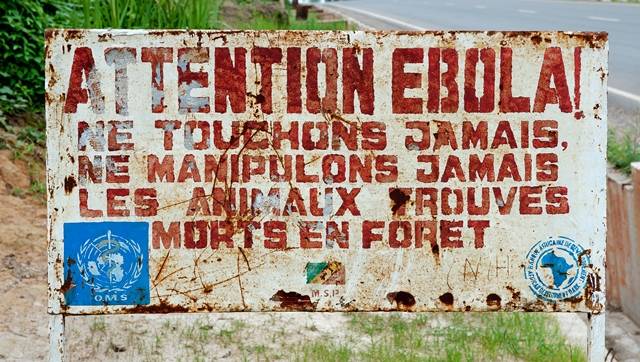The Ebola virus is dominating global headlines and causing widespread panic across the African continent and beyond, a result of the virus’s shocking mortality rate (over 55% so far in this outbreak) and growing death count (currently over 4,000, according to the CDCP). In a sign of growing concerns about Ebola in the United States, President Barack Obama recently canceled travel plans to convene a meeting at the White House of Cabinet agencies coordinating the government’s response to the outbreak. With no proven treatments, governmental and aid agencies around the world are all too well aware that this crisis has the potential to become a much bigger problem than it already is.
In the absence of any effective treatment, most experts agree that traceability is key to containing Ebola’s spread—from understanding where the outbreak started and where infected patients are located to obtaining up-to-date information on the spread of the virus and the formal patient monitoring process.
Is this level of complex and comprehensive monitoring possible without significant investments in time and resources?
The mechanisms that can gather the type of “personal” data needed to contribute to a solution already exist—on a very large scale. In fact, the reality is that our personal data footprint is already unfathomably wide, deep and large because it has become entirely possible for everyone and everything to be tracked, recorded and mined. If you use a smartphone or tablet your personal data is already being used by businesses trying to reach a more relevant customer base. Every website you visit, every app you open, every Google search you perform, your exact physical location, your behavioral tendencies, where you work, where you play, who you socialize with—it’s all recorded and transmitted to the big technology players… in real time. Unfortunately though, this data is only being used in a meaningful way to serve you more relevant ads.
Can mobile health applications offer a solution?
As mobile technology takes a more prominent role within our healthcare system and the ability to manage and track one’s own wellness through widely popular mobile apps, it is fair to question how these technologies can help in times of international crisis such as this. In fact, a handful of applications already exist that allow users, aid workers and other medical practitioners to test and share results for illnesses such as HIV, malaria and flu using only a smartphone. Why are such technologies not being used to test and track Ebola? Geo-referenced, real-time maps of infected patients could be key to tracking and controlling the spread of the virus. With Africa boasting the fastest growth in mobile subscribers in the past decade—predicted to reach 1 billion by 2015—technology requirements shouldn’t be a restriction. In addition, many leading mobile and service providers are offering low-cost smartphones and broadband to encourage usage.
With rapid point-of-care manufacturers pushing to develop tests that identify Ebola without the need to send patients and samples to off-site labs, shouldn’t mobile technology that reads, shares and tracks results and offers medical advice also be implemented? The same technology that was created for the purpose of helping businesses and marketers better reach customers and prospects can also be used to help stop the spread of this deadly disease—we just need to give up a little privacy to help make it possible.










